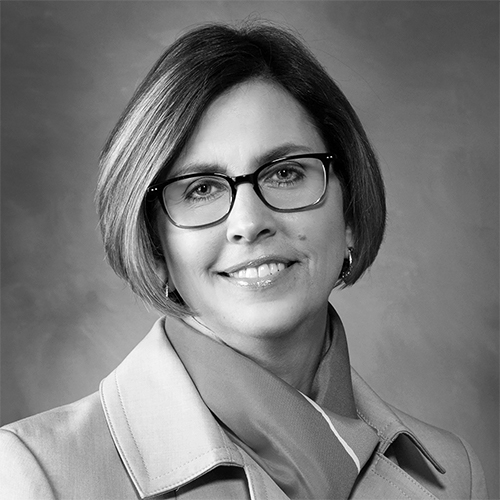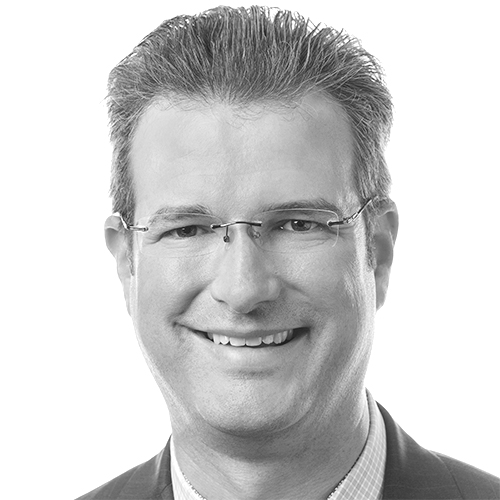As a nonprofit, mission-focused Catholic healthcare ministry with five hospitals across Louisiana, the Franciscan Missionaries of Our Lady Health System (FMOLHS) tends especially to citizens in need. In fact, the 105-year-old organization provided more than $89 million in unreimbursed care in 2015—to almost half of Louisiana residents. Senior VP and CFO Bob Ramsey finds new ways to meet its financial challenges so that it can continue its mission into the next century.
What about FMOLHS’s Catholic mission makes its financial challenges unique?
Bob Ramsey: Well, Louisiana is not a very rich state. The general health of the people in Louisiana, as compared to say, Illinois, seems to be near the bottom. We’re sponsored by the Franciscan Missionaries of Our Lady, who are a congregation of sisters. We have a certain level of care of those most in need, and you have to balance the mission and the margin because you have to have a margin to continue this ministry. You have to have access to capital. I can’t go back to shareholders and say, “We need to sell more stock,” because I don’t have shareholders. The tax exemptions are very important. We are committed to making sure these communities have access to healthcare. We’re close to $2 billion in operating revenues, and I have margins in between 1-2 percent. So, we’re able to support our debt easily, but we have to continue to reinvest in our institutions.
“We’re able to support our debt easily, but we have to continue to reinvest in our institutions.”
How do you balance your roles as Senior VP and CFO?
Ramsey: My role is corporate, and I have a lot of the overhead areas that report to me. The support is tied to accounting, risk-management insurance, information systems, supply chain, revenue cycle, and payer relations.
My role is also from a treasury standpoint, so our investment pools, our consolidated health systems and the fiduciary committee, made up of trustee members, work on consolidated financials for the health system, including our audited financial statements.
We have debt that I’m responsible for going out to procure, and usually we do tax exempting. I’m responsible for making sure we continue to have access to capital—to be able to go out and borrow money at a reasonable cost—to make sure we continue to fund our pension, continue our fiduciary responsibility around our balance sheet, and to maintain a culture of compliance.
What are some of the main challenges facing FMOLHS and similar organizations today?
Ramsey: The computer and technology systems continue to get more complex. We have to stay current and make sure we have adequate technology. The method in which we get paid has changed significantly. Maintaining physician relationships between the hospitals is another.
At the end of the day, the biggest challenge is increasing revenue. We continue to have to work on lowering costs of care and overhead, and yet make sure that we provide quality care.
We then have to make sure that we have enough people in place to support ethical business dealings and all the government regulations that we continue to operate under. But we have to put the organization above self-interest. We’d never want to embarrass the sisters.
How did you get started in healthcare finance?
Ramsey: I graduated in 1980 from Southern Illinois University in Carbondale, Illinois, in accounting, with a minor in computer science. I worked for a couple of years at the university in the research office. Blue Cross Blue Shield had a position for a Medicaid auditor, so I worked for them about four years and worked my way up to senior auditor. Our job was auditing hospitals.
It’s funny because I was more interested in working in oil and gas, or aeronautical engineering. But, it was one of those things: “Well, it looks like I might be in healthcare for my career, now.” From there, I started working my way up in reimbursement, and taking on additional duties at a couple other organizations and over time, serving as director of finance, or accounting director. I got broad experience working for a small health system and a large tertiary care system in Missouri. In 1995, I had the opportunity to become CFO for a 180-bed, for-profit facility in Springfield, Illinois, and that launched me into my CFO career.
When did you land at FMOLHS?
Ramsey: I was CFO in Springfield from 1995 to 1998. My daughter was in college, and I was tired of working in Central Illinois. I had the opportunity to come to Our Lady of the Lake in Baton Rouge. I started there as VP of finance. I went from VP of finance to CFO in less than fifteen months. I was promoted and was CFO of Our Lady of the Lake for about ten years, and then got the opportunity to become CFO of the entire system. I’ve been in my current role for six years. I love it down here.
What do you enjoy most about your CFO role at the company?
Ramsey: I enjoy working for a nonprofit, mission-based organization compared to a quarter-to-quarter, for-profit organization. Not that we don’t have to somewhat operate as a for-profit, because that’s our competition, but I don’t have Wall Street quarterly estimates to deal with. I’m clearly not a physician, but I do believe I am contributing to the ongoing mission of this organization, and furthering that mission. AHL


